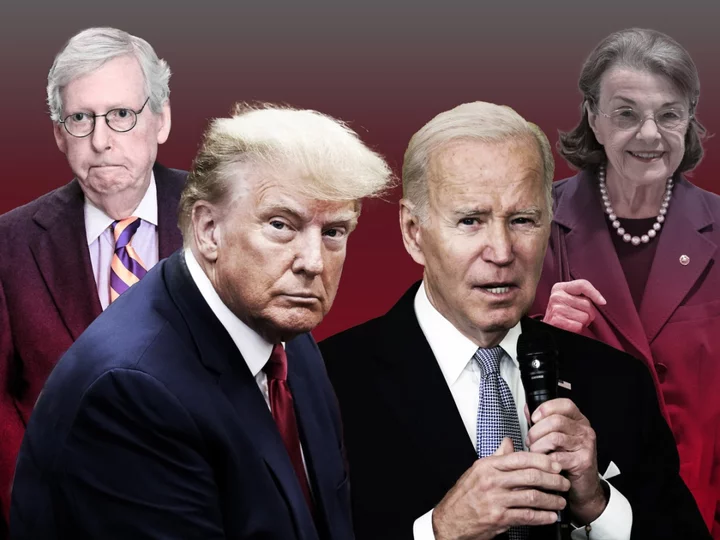
The danger of America’s aging politicians
Late last month, as Washington’s political and media elite gathered at the Hilton hotel for the White House Correspondents’ Dinner, Joe Biden, 80, couldn’t gloss over a fact that’s increasingly colouring his political future: He’s just an exceptionally old person to be president. In fact, he’s the oldest person to ever hold the White House. “I believe in the First Amendment — not just because my good friend Jimmy Madison wrote it,” the president began in his remarks, before good-naturedly taking The New York Times to task for stories about his age. “You call me old? I call it being seasoned,” he said. “You say I’m ancient? I say I’m wise. You say I’m over the hill? Don Lemon would say that’s a man in his prime.” The reference was a telling one. Mr Lemon, who was ousted from CNN last month, caused a minor media scandal when he commented about women of a certain age being past their “prime.” This remark was itself a reaction to former South Carolina governor and current presidential contender Nikki Haley calling, somewhat scandalously, for mental competency tests for politicians over age 75. Generational conflict is nothing new in American politics, but age has played an especially prominent role in Washington in recent months, impacting everything from leadership battles in Congress to the future of the presidency, raising questions about fairness, gender, and the vitality America’s very institutions themselves, which have scarcely ever been filled with more senior citizens. Mr Biden may have been in a laughing mood at the Correspondents’ Dinner, but that may have just been him putting on a smiling face for the cameras. His pollsters are surely worried about recent data, such as a March poll finding 68 per cent of registered voters thought he was too old for another term, or an April poll finding that 70 per cent of adults said Mr Biden shouldn’t run again, with the roughly same percentage saying age was a factor in that decision. The age-related worries are just the tip of the iceberg though. Overall, there’s a marked lack of enthusiasm for Mr Biden, with 57 per cent of respondents in a recent poll suggesting the Democrats should nominate someone else in 2024. If these doubts were vanquished, and Mr Biden did win again, he would be 86 by the end of his second term. If Mr Biden was re-elected, it would further cement the dominance Baby Boomers have exerted over national politics in recent decades, according to Kevin Munger, assistant professor of political science and social data analytics at Pennsylvania State University, author of Generation Gap: Why the Baby Boomers Still Dominate American Politics and Culture. “We’ve had 28 years of Boomer presidency in a row,” he said. “That streak was only ended by Joe Biden, who is technically too old to be a Boomer by two years. That is unprecedented for a single generation.” Age was a political accelerant during the Trump presidency, too. Prior to Mr Biden, the billionaire, at age 70, was the oldest person ever to become president. Throughout his presidency, Mr Trump’s mental fitness and cognitive health was a political flashpoint, with the former president bragging about his results on mental competency tests, psychologists openly openly opining about the president’s mental acuity, and former advisors gossiping to the political press that Mr Trump’s mental decline was so serious cabinet officials considered invoking the 25th Amendment and removing him from office. Of course, Mr Trump, the insult-comic-in-chief, found a way to turn this speculation against his rival, dubbing Joe Biden “Sleepy Joe” throughout the 2020 campaign season. It’s not just the White House, though, where age has been a concern. The present Congress contains the second-oldest Senate and third-oldest House in US history. Generationally, the US population fits roughly into four, equal-sized blocks of about 20 to 25 per cent: ages 0 to 18, 19 to 34, 35 to 54, and 55-plus. The composition of Congress, meanwhile, is drastically tipped toward the elder part of that range, with the median House member aged 57.9 and the median senator aged 65.3. Beyond just being another way the US government doesn’t mirror the wider diversity of the US population, age within Congress can become a political weapon, used by both parties as part of their machinations. In March, Senator Dianne Feinstein, 89, the oldest US Senator, who has been dogged in her later years with accusations of declining mental faculties, was hospitalised with shingles, and has had to miss large swathes of in-person work in the upper chamber as she recovers. The following month, she asked to temporarily be replaced on the key Senate Judiciary Committee, which handles the appointment of federal judges, one of the few remaining ways the Democrats can exert lasting influence in a divided Congress. However, Republicans, knowing that the full Senate must approve committee assignments, have added a major, likely unacceptable demand for the Democrats: they’ve asked that Senator Feinstein must resign the Senate entirely before they consider a replacement. In a sign of just how scrambled the politics of age are on the Hill, members of both parties have argued such treatment is unfair, but that hasn’t stopped the GOP from changing its tune. Sen Chuck Grassley, Republican of Iowa, called the demands “very anti-woman” and “very anti-aging” in an interview with The Independent, while Sen Elizabeth Warren, Democrat of Massachusetts, argued, “The Republicans are saying no, for no reason, other than trying to block the court from going forward in its investigation of the Supreme Court and pass more judges, which is the right of the majority to do.” The issue has divided the Democratic Party as well. In April, rising star California congressman Ro Khanna forcely called for Sen Feinstein to resign. “We need to put the country ahead of personal loyalty,” he said. “While she has had a lifetime of public service, it is obvious she can no longer fulfill her duties. Not speaking out undermines our credibility as elected representatives of the people.” Age has also been a clear undercurrent in House leadership battles, where former House Speaker Nancy Pelosi made a point to highlight the comparative youth of the new slate of Democratic leadership, following at times barbed exchanges between her and younger, more progressive parts of the party like Representative Alexandria Ocasio-Cortez. “The hour has come for a new generation to lead the Democratic caucus,” she said in November when she stepped aside. “Now we must move boldly into the future, grounded by the principles that have propelled us this far, and open to fresh possibilities for the future.” All told, according to Professor Munger, the age of America’s most senior politicians – Sen Chuck Schumer is 71, Sen Mitch McConnell is 81 – often means that issues that matter to other generations don’t get top billing, leading both to disaffection and to bigger-picture existential issues, like a lack of serious climate legislation or the impending funding crisis of Social Security. “It’s been clear that because of the size of the Boomer generation, at a certain point we were either going to have to raise taxes on the workforce or cut the benefits,” he said. “We didn’t do either of those things. Sometime in the 2030s, it’s going to run out. They’re not going to cut benefits to Boomers…Instead, younger generations are going to have to fully fund this obvious 30-year shortfall.” In the case of Social Security in particular, many of the leaders deciding on the issue are current recipients, while those younger generations who will likely pay more or get less in the future aren’t represented in office. A similar problem arises with climate change: the leaders holding up urgent action on the climate likely will not be alive to see the very worst impacts of their inaction. “The issues that matter to younger generations don’t get on the agenda at all,” Prof Munger added. Instituting parliamentary system, he said, instead of our current winner-take-all model might lead to more representational and ideological diversity, but like major climate or benefit reform, overhauling the US election system doesn’t seem to be a consensus priority at the moment. And those younger generations in turn don’t participate as much as they fully could at the national level. In the 2022 midterms, only 23 per cent of eligible young Americans cast a ballot, up from 2014’s woeful 13 per cent, but still well below the participation rate of older generations. The same held true in 2020, the highest turnout election of the 21st century: 76 per cent of those age 65 to 74 voted, while only 51.4 per cent of those 18 to 24 did. Some of this demographic dominance is unavoidable, argues Philip Bump, Washington Post columnist and author of The Aftermath: The Last Days of the Baby Boom and the Future of Power in America. The Boomers, born in the abundant post-war years between 1946 and 1964, were until very recently the largest generation in US history. During their lifetimes, American cemented its place as a global economic superpower, the voting age lowered to 18, and the federal government poured millions into creating a new middle class. It’s no surprise then, Mr Bump says, this generation has a strong hold on power. “The Baby Boomers make up a disproportionate share of elected officials, especially at the federal level, simply by virtue of scale,” he told The Independent. Combine that with the built-in political advantages of incumbency and wealth, and you have a recipe for a political system tilted towards older people. “Senators are not usually just elected out of the blue,” he added. Some argue that critcising elected leaders, and the system at large, over age concerns is ageist, and often sexist as well, given the extra scrutiny paid to leaders like former Speaker Pelosi or Senator Feinstein. However, according to Amanda Litman, co-founder of Run For Something, an organisation that encourages young people to run for office, this is largely missing the point. Any one elected leader can be an effective and competent advocate regardless of age, she told The Independent, but we must acknowledge that the system at large needs to allow more young people in. “This isn’t about any one person. This is about a collective problem of Congress not being reflective of the American people,” she said. “We know that in business, and in other governments, things work better when they’re made up of diverse perspectives. All of us would be better served if there were more voices at the table.” According to Penn State’s Professor Munger, debates about age in politics aren’t new. During Ronald Reagan’s second term, similar conversations about mental fitness and age circulated around the Beltway and the country at large. And despite the apparent controversy of someone like Nikki Haley calling for age limits, the US already has such policies in other arenas, like age requirements for generals or pilots, or mandatory retirement ages in certain other professions. What makes these conversations often intractable, though, is that they’re not really ever just a conversation about age or reform, he argues. Both parties are always considering the partisan stakes. “There’s no way to have that debate except through the lens of immediate political reference,” he said. Finding some resolution to the generation wars will be urgent, however. There’s a higher percent of Americans older than 65 than there has ever been in US history, so questions about age, competence, and representation aren’t going away any time soon. Neither are big-picture problems like the climate crisis, where urgent action is needed now to prevent impacts that will play out in both a matter of seasons and centuries. Ms Litman, of Run for Something, is encouraged by recent research her organisation did, which found that more than 130,000 young people around the country wanted to run for office. To her, it showed that for all the inaccessibility of the US political system, younger generations have the same urge to serve as those who came before them. “We often hear, young people don’t vote. They don’t want to engage,” she said. “That’s not true. You have to ask. You have to open the door to them. When you do, they are ready and eager to run right through it.” Read More Biden 2024: The polls, the politics, and why he needs Trump in order to win What should Democrats do about Dianne Feinstein? Biden laughs off 2024 age concerns: ‘My career of 280 years’ The US has approved $42 billion in loan forgiveness for public service workers. Here's what to know Harris 1st woman to deliver West Point commencement speech AP source: Harris postpones MTV event over writers' strike
1970-01-01 08:00

FDA panel backs over-the-counter birth control pill
Federal health advisers are recommending that a decades-old birth control pill be sold without a prescription
1970-01-01 08:00

Wagner boss fumes that Russian brigade 'fled' from Bakhmut area
The boss of Russian mercenary group Wagner, Yevgeny Prigozhin, accused a Russian brigade of abandoning its position in front-line Bakhmut, allowing Ukraine to seize territory.
1970-01-01 08:00
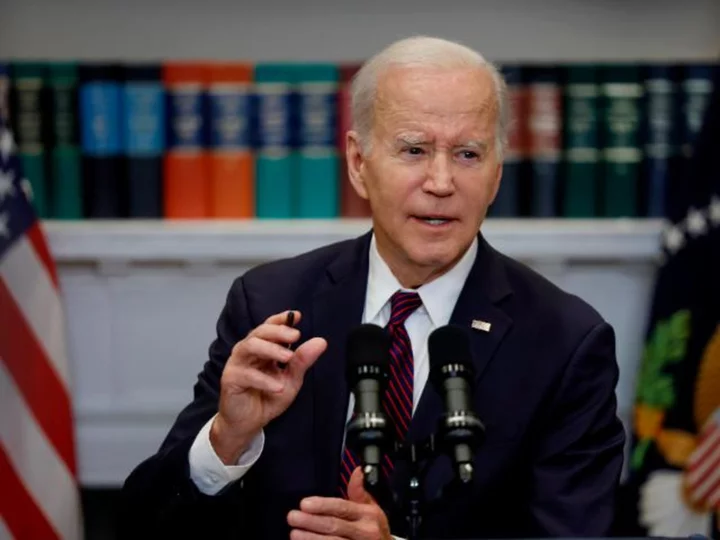
Biden to take unprecedented measures to manage the border but concerns remain over end of Title 42
The Biden administration is rolling out unprecedented measures intended to levy consequences against migrants who cross the border unlawfully in the wake of Title 42's expiration this week. But, officials concede, the high number of border arrests in the coming days will still pose a steep challenge.
1970-01-01 08:00

White House backs faster energy project permits, joining Republicans
By Jarrett Renshaw and Timothy Gardner WASHINGTON (Reuters) -The White House on Wednesday called on Congress to pass permitting legislation
1970-01-01 08:00

TikTok defends app following Welsh and UK government ban
The UK and Welsh government have banned the app from staff phones over security concerns.
1970-01-01 08:00

Can you afford to age in place?
Most older adults ages 50 to 80 say it’s important to stay in their homes for as long as they can, according to the 2022 National Poll on Healthy Aging from the University of Michigan
1970-01-01 08:00

In Khartoum, civilians face desperate struggle to survive
By Adam Makary and Dina Sakr CAIRO Since fighting broke out in Sudan on April 15, Khartoum resident
1970-01-01 08:00

Finnish Prime Minister Sanna Marin and husband file for divorce
Finnish Prime Minister Sanna Marin and her husband, Markus Räikkönen, are to divorce after 19 years together, Marin announced on Instagram on Wednesday.
1970-01-01 08:00
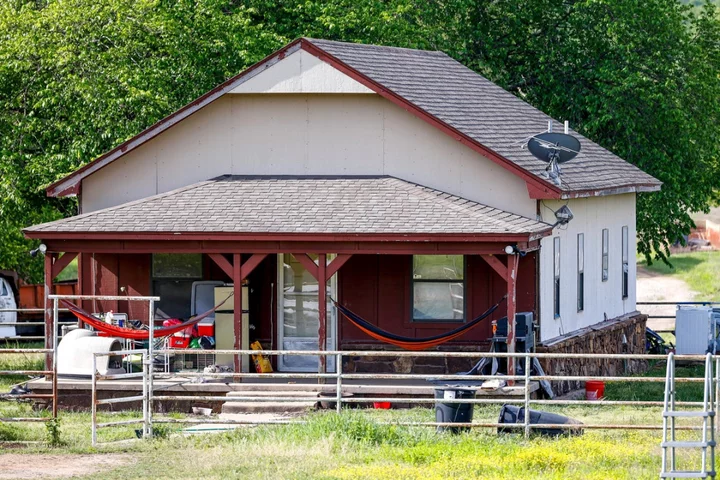
32 phones ‘linked’ to Henryetta murder-suicide crime scene as officials probe Jesse McFadden’s past
An attorney representing the family of one of the teens killed in the murder-suicide in Henryetta has made shocking revelations. The Oklahoma State of Bureau Investigations confirmed last week that convicted rapist Jesse McFadden shot dead his wife Holly Guess, 35, and her children Rylee Elizabeth Allen, 17, Michael James Mayo, 15, and Tiffany Dore Guess, 13 before turning the gun on himself. McFadden also killed Ivy Webster, 14, and Brittany Brewer, 15, who were at the home visiting Tiffany for the weekend. Following the gruesome discoveries on 1 May at McFadden’s property, reports emerged that he was facing fresh soliciting and child porn charges after he was caught exchanging lewd images with a 16-year-old in 2016 while serving time in jail for the rape of another minor. McFadden had an early release in 2020, despite the severity of his previous crime and pending charges. Over the weekend, dive teams with the OSBI were spotted using sonar devices at one of the ponds neighbouring the scene of the heinous crime, KJRH reported. The second processing came after KFOR revealed that authorities left behind a trove of stomach-churning evidence at McFadden’s property after releasing the scene. While touring the residence, a crew of reporters found hand restraints, sex toys and drug paraphernalia that have since been seized by Okmulgee Police. Cameron Spradling, an attorney representing the Webster family, has now divulged that 32 different cell phones and individuals used McFadden’s “house of horrors” as their location address. The findings have been handed to the OSBI, Mr Spradling. The mishandling of McFaddens’ sex crimes and confusion regarding leadership in the murder-suicide investigation have caused outrage in the community. Ivy and Brittany’s parents have said they did not know McFadden had been convicted of raping a minor, while Guess’ mother has said she only found out very recently. In a statement to The Oklahoman after the deviant findings at McFadden’s residence, Mr Spradling said: “The family of Ivy Webster were shocked to discover that computers and cell phones had not been seized by law enforcement when they viewed the inside of this house of horrors. No words can express this family’s fear that the sexual assault of their baby girl has been placed on the dark web. We demand that law enforcement seize all electronic devices and hunt down all sexual predators who have witnessed the suffering of Ivy Webster.” A neighbour of McFadden also told KJRH last week that six months ago, they saw somebody digging the pond where police excavation teams were seen this past weekend. When confronted, the individual reportedly said they meant to expand the pond, despite there being no apparent reason to do so. A family of the victims also found a ledger at the crime scene with a list of unknown names and ages — the last final names being those of the six victims shot dead by McFadden last week before he turned the gun on himself, according to the network. The Independent reached out to the OSBI for comment on the possibility that McFadden may have been the individual digging the pond last year, and whether the agency is investigating other potential crimes at the property. The agency declined to address the questions. McFadden, who was on the state sex offender registry, was initially sentenced to 20 years in prison for rape in 2003. After his early release in October 2020, McFadden was arrested the next month and then released on a $25,000 bond pending trial, which was repeatedly delayed, partially due to the Covid-19 pandemic. McFadden’s rape victim Krystle Strong and cellmate James Fleming told The Independent last week that they separately contacted several law enforcement agencies in a fruitless attempt to stop his release and warn authorities that he was a danger to the community. A spokesperson with Henryetta Police Department said that McFadden’s address was located in an unincorporated part of Okmulgee County, where his registration was up to date, and deferred to Okmulgee Police Department, which did not answer The Independent’s request for comment. “Due to his home address. Henryetta Police Department would have no records kept of his registration,” Henryetta Police said in a statement. Several departments in the District 25 task force were initially put in charge of the investigation, according to KFOR reporter Erin Christy. Ms Christy said that she was deferred to the OSBI by the Okmulgee County Sheriff’s Office after Sheriff Eddy Rice declined to clarify the confusion surrounding which agency had the eadership of the case. “Ultimately, someone needs to say we’ll go through this or that. What did you miss? And if you have people outside your jurisdiction, it doesn’t work well,” Former Tulsa Police Department homicide detective Dave Walker told KFOR. “You gotta be in charge of everything or you’re not in charge of anything.” Read More Dive and excavation teams spotted at Jesse McFadden’s property as mysterious list with victims’ names found Jesse McFadden’s obsession with sex alarmed his jail cellmate. Why was he released early? Jesse McFadden raped me 20 years before his Oklahoma massacre. My pleas to keep him locked up were ignored
1970-01-01 08:00
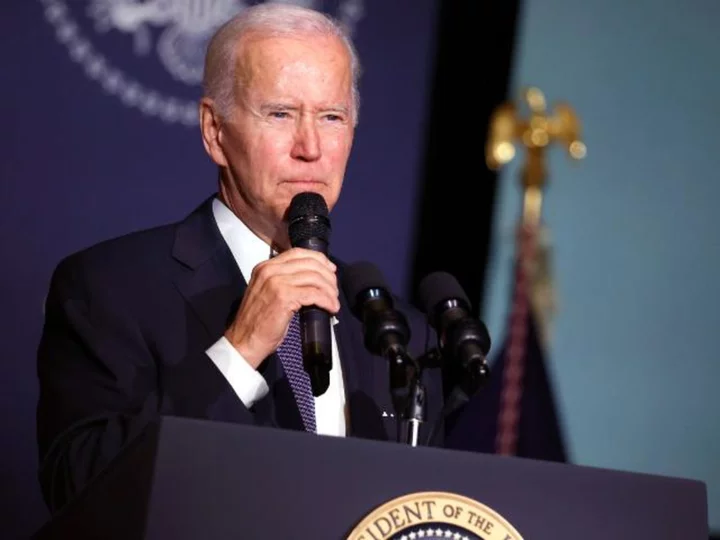
Biden to hammer Republican budget cuts which target his student loan forgiveness plans
When President Joe Biden speaks at a community college in New York on Wednesday, he's expected to hit Republicans hard for budget cuts they are demanding as part of their bill to raise the debt ceiling.
1970-01-01 08:00
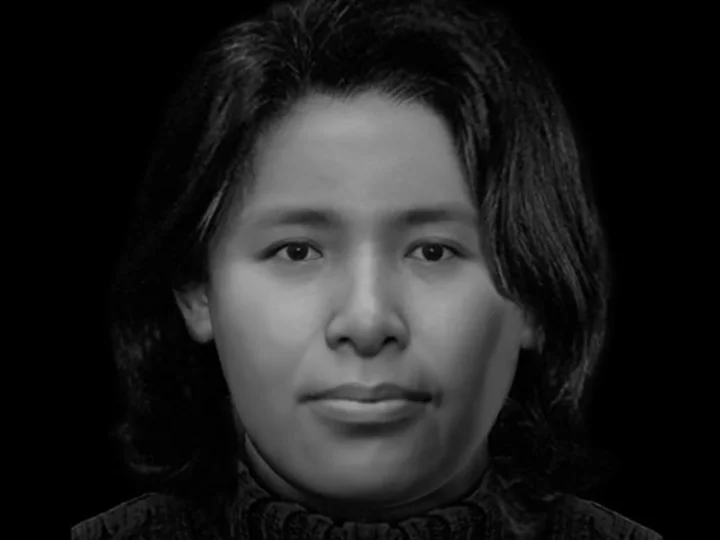
Authorities search for the names of 22 women murdered in Europe
Interpol are searching for the names of 22 women murdered in Belgium, Germany and The Netherlands over the last few decades, whose identity remains a mystery.
1970-01-01 08:00
